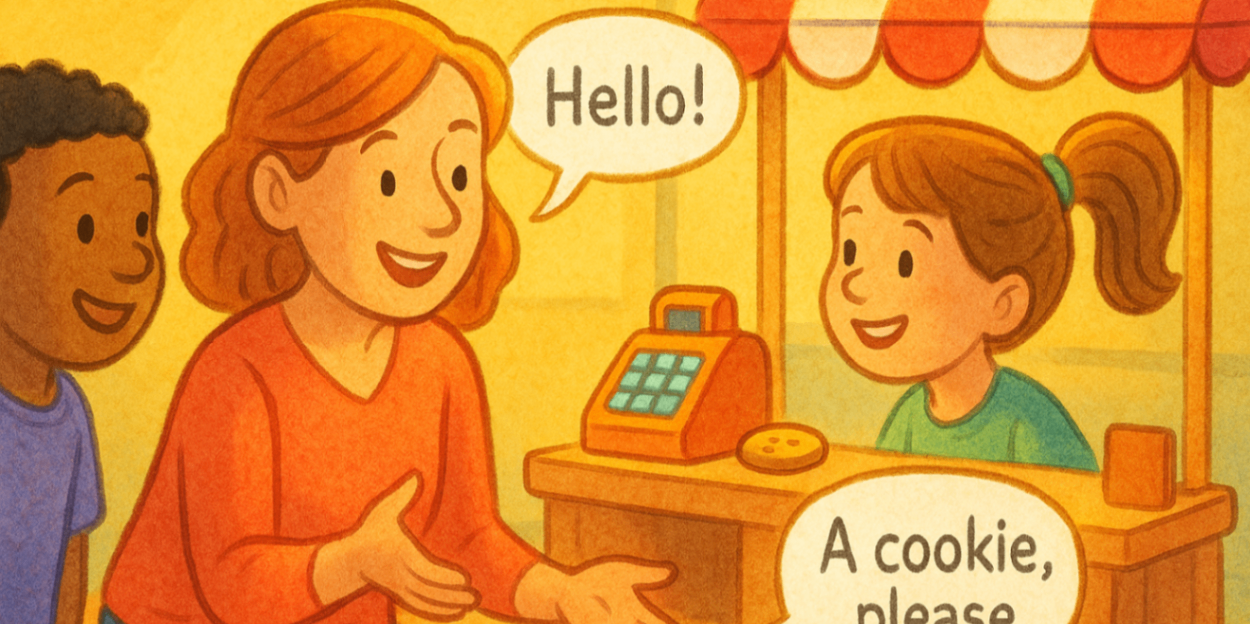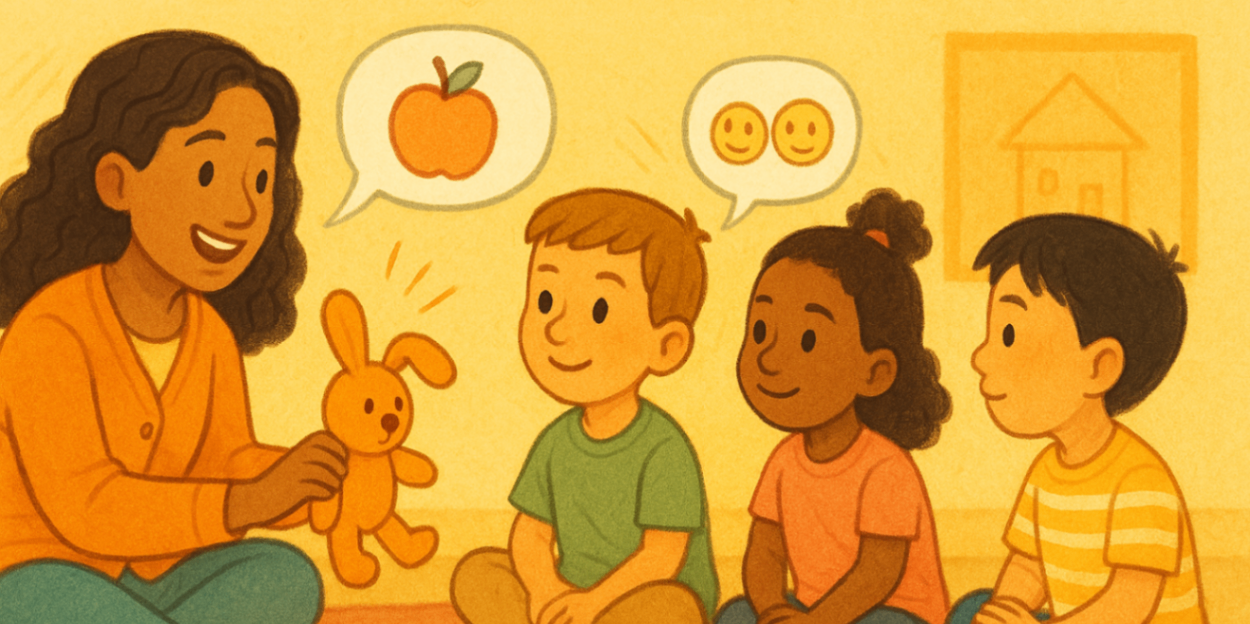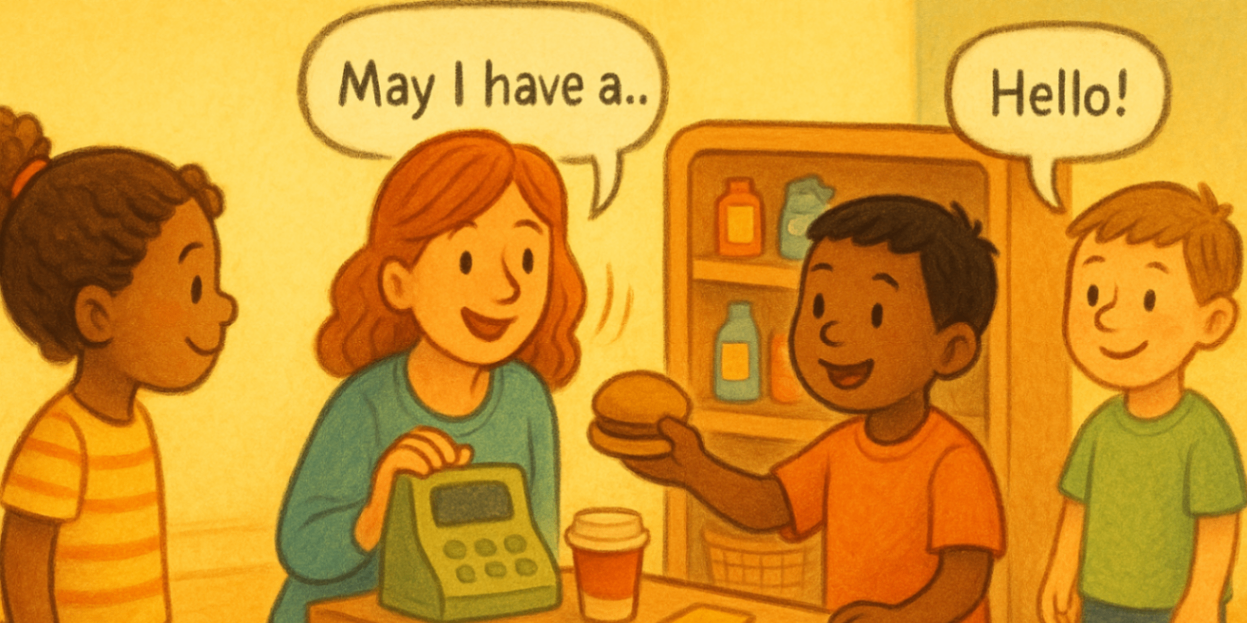
how speech therapy supports social skills in children
5 September, 2025
Speech therapy helps people grow their social skills. The work is on things like how you act in conversations, share turns, read body language, and fix mix-ups when talking. This is done using practice that has steps, acting out what people say and do, guiding parents, and working with teachers in the classroom.
Key Highlights
Here are the key takeaways from this guide:
-
Speech therapy helps a child get better at talking and boosts their social skills. It helps them talk to other people with more ease.
-
A good therapist does more than help with talking. The work is also to help with social communication. The child learns what people expect in a real chat, such as when to speak, pause, or listen.
-
A key skill in language development is knowing what other people feel or think by looking at their faces or bodies. A child learns to read facial expressions and the way someone uses body language.
-
Therapists give children new communication skills through games and fun practice during play time.
-
Speech therapy is a big help for kids who have communication disorders like autism spectrum disorder. This can make life better for them and for those around them.
Understanding the Link Between Speech Therapy and Social Skills

You may ask how speech pathology is related to making friends. The answer is about how we talk to each other. People get close and feel good together by sharing what is in their minds and also by knowing what people say. If there are communication disorders, it can keep a child from joining in the easy chatting that goes on between friends. This can make it hard for them to be part of the talk and feel left out. Speech pathology works to help with these issues. It lets kids feel better and join in with people around them.
Speech therapy helps kids with their language skills. A therapist works with the child to help them speak and understand better. This makes it easier for them to join in and talk with others. The help they get lets them connect with people, feel included, and build good friendships. Speech therapy can help remove what gets in the way when talking, so kids feel better and more confident in social times.
Why Social Skills Matter for Children’s Development
Building good social skills is very important for your child. It helps with how they feel and how happy they are. These skills help them make friends. They also learn how to talk and work with other people at school or outside. If your child finds it hard to talk to others, it can make them feel upset or alone. They might feel worried and not understand what other children want. It can be hard for them to say what they feel or ask for what they need. They also may not know what other kids mean when they talk to each other. Social skills help with all this. When looking for a speech pathologist who focuses on social skills, parents should look for professionals who are certified and licensed in speech-language pathology, have experience working with children on social communication, and use evidence-based methods. Ideally, the speech pathologist should also have specific training or a background in helping children develop social skills in group and individual settings.
Many people think that speech therapy is only used to fix a child’s speech or help with talking problems. But the truth is, speech therapy also helps kids learn how to talk with other people. A big part of language development is knowing the social rules in talks. With speech therapy, children can get help with these social rules. This helps them know what to say, when to listen, and how to join in conversations. It is much more than just correcting sounds or words.
When you help your child learn these skills, you are not just helping with the way they talk. You are also giving them what they need to make strong friendships. Your child will feel good about themselves when they are around other people. This is very important for their happiness and how they feel about others as they grow up.
The Connection Between Communication and Social Interaction
Effective communication is very important for people to connect with each other. It is not just about the words you say. It also has things like how you read someone’s face or actions, follow the way people talk, and hear how they say things. Good communication skills help your child to know what others feel and think. It also helps your child be sure others know what he or she means. This is very helpful for your child to make friends and build bonds with them.
Social communication is about following many unwritten social rules. Some of these rules are things like let others talk when you talk with them, don't stand too close to someone, and use the right facial expressions. A lot of kids pick up these things as they grow, but some do not. Some children need help to learn these steps. A child who has trouble with these social rules and facial expressions might read things the wrong way. This can make social life hard for them.
Speech pathologists check these abilities by watching how a child acts during play and while talking with others. They look for how the child starts talking to someone, answers people, and how they use things like eye contact and motions with their hands or face. Doing this lets them find out which skills need work. It also helps them make a plan to help your child get better at social skills.
Common Social Skills Targeted in Speech Therapy

Speech therapy sessions help kids learn good social communication skills that they need every day. There is more to it than just working on how they say words. Language therapy helps children feel more comfortable when talking with others. Therapists teach kids what to say and what to do when they talk to people. These sessions focus on building stronger communication skills, including the basics of social communication.
This help can be very useful for kids with communication disorders who feel uneasy in social places. The aim is to help them feel sure of themselves and know what to do when they are out in the world. The next parts talk about the skills that many people work on in therapy.
Initiating and Maintaining Conversations
One of the most basic social skills is knowing how to start a talk and keep it going. Many children with articulation disorders or social communication problems feel that this is hard and even scary. Speech therapists use structured games and simple activities to help them learn new skills. This is done in a setting that is calm and has little pressure.
Therapy is about helping people with conversation. A therapist will often break down each step. For example, you may practice asking a friend to play. You might also practice joining a group. A therapist may use role-playing to help with this. They give you clear feedback. This includes tips on making good eye contact. They also help you know how to ask follow-up questions. That way, you keep the talk going. The goal is to make talking feel easier and less hard.
Activities used in speech therapy to build these communication skills can include:
-
You can use storybooks or picture cards. These help kids make a story and practice asking questions like "who," "what," and "where." It is good for them to get what is happening, talk about the people, and know where things are in the tale.
-
Try playing games where people take turns, like board games or working together to build something. These are good because everyone has to talk and listen. Kids practice saying things and waiting for the other person to answer.
-
Do role-playing that shows everyday life, such as pretending you order food at a cafe or ask a teacher for help. This helps kids learn what to say in real situations. They use words they know and feel more sure about talking.
Recognising and Responding to Social Cues
A lot of how people talk to each other is done without saying anything. The way someone stands, their body language, the tone of their voice, and their facial expressions are very important in how we connect. Children who have social communication difficulties might miss these special social cues. Because of this, they may not understand what is going on or could reply in a way that is not right.
Speech therapy helps kids learn how to read other people’s actions, like a detective looks for clues. They practice how to spot things like a smile or a worried look. A therapist may use videos or pictures so the child can see faces and what the signs mean. They practice talking and watching for signs. They also practice how and when to use appropriate eye contact so the person speaking sees they’re listening and they feel part of the talk.
Signs that a child may need help in this area include:
-
Have trouble you with getting jokes, sarcasm, or sayings that do not mean what they say.
-
Look like you do not care when someone is talking to you.
-
Not see when a friend is sad or upset there. You might miss signs from their face or how they sit.
Speech Therapy Approaches for Social Skill Development

Speech therapists use different ways to help children with social learning. With the help of speech pathology services, these experts give children a safe place to practice and improve. A child may have one-on-one sessions or take part in social skills training with a group. This will depend on what the child needs. Speech therapists choose the best way to build social skills for each child.
For children who have autism or a language disorder, these ways can really help. Speech therapists often use play and interactive activities so learning is fun and keeps children interested. The goal is to help children build useful skills they can use every day at school and at home.
Short scripts & role-play templates parents and teachers can use
Practicing social scenarios at home is a good way to help your child remember what they learn in therapy. You can use simple scripts and try role-play with them. These interactive activities will help your child feel ready for real-life talks. In this way, your child can practice following social rules with you. It is safe and comfortable for them to do it at home.
You can talk with your child's speech therapist. They can help you find what situations be hard for your child, like when they try to join a game or ask someone for help. You should start with simple and easy scripts that your child can practice. As their confidence gets better, you can slowly make the scripts harder little by little. It is important to keep everything fun and upbeat for your child.
Here are some examples of scripts you can practice:
|
Social Situation |
What Your Child Can Say |
|---|---|
|
Joining a Game |
"Hi, that looks fun. Can I play too?" |
|
Asking for a Turn |
"May I have a turn with the blocks when you're done?" |
|
Greeting a Friend |
"Hi, [Friend's Name]! How are you today?" |
Conclusion
In short, speech therapy plays a vital role in helping children build meaningful social skills. By learning how to start conversations, read body language, and practise through role-play, children gain the confidence to connect with others and form real friendships.
Parents and teachers can reinforce these strategies at home or in the classroom, creating more opportunities for children to practise and succeed socially. With the right guidance, every small step can lead to stronger communication and lasting relationships.
Want to explore how speech therapy could support your child’s social development? Book your consultation today with our experienced team.
Frequently Asked Questions
How does speech therapy benefit children with autism in social settings?
For children who have autism spectrum disorder, speech pathology helps with main problems in talking with others. Speech therapists work in a clear way to teach kids how to read social signs, share turns while talking, and get what others feel or think. These skills can be hard for some kids that live with social communication disorders. Speech pathology is very important to help kids build good social communication and learn ways to talk better with people around them.
What signs indicate a child may need speech therapy for social skills?
You should take your child to see a speech pathologist if they have social communication problems that do not go away. Some signs to look for are having trouble starting or keeping a talk going, not getting non-verbal social cues like looking at someone’s facial expressions, or having a hard time making friends. These issues might mean that your child has a language disorder or social communication problems.
How can parents reinforce social skill learning at home?
The best way for parents to help with social skills training is by having their children practice often. Try interactive activities, like acting out simple social situations and using games that need taking turns, to show how to talk well with others. When you praise your child's effort, it helps them learn new skills and it is good for their language development too.
What is speech therapy used for?
Speech therapy is used to address communication disorders, helping individuals improve their speech, language, and social skills. It supports children in developing effective communication techniques, enhancing their ability to interact with peers, express themselves, and build confidence in social situations. Ultimately, it fosters better relationships and overall social development.
.svg)

















